

| Cruise Region : South America / Antarctica |
| Company : Oceania Cruises |
| Ship : Insignia |
| Journey Start : կիր 03 հնվ 2027 |
| Journey End : կիր 24 հնվ 2027 |
| Count Nights : 21 night |
| Day | Date | Port | Arrival | Departure |
|---|---|---|---|---|
| 1 | 3.01 կիր | Լիմա / Peru | 20:00 | |
| 2 | 4.01 երկ | PISCO NAZCA LINES | 07:00 | 16:00 |
| 3 | 5.01 երք | Օր ծովում / Sea | ||
| 4 | 6.01 չրք | Օր ծովում / Sea | ||
| 5 | 7.01 հնգ | Կոկիմբո / Chile | 09:00 | 17:00 |
| 6 | 8.01 ուր | ՍԱՆՏԻԱԳՈ ԴԵ ՉԻԼԻ | 09:00 | 18:00 |
| 7 | 9.01 շբթ | Օր ծովում / Sea | ||
| 8 | 10.01 կիր | Պուերտո Մոնտ / Chile | 08:00 | 16:00 |
| 9 | 11.01 երկ | Պուերտո Չակաբուկո / Chile | 10:00 | 20:00 |
| 10 | 12.01 երք | ՍԱՆ ՌԱՖԱՅԵԼ ԼԻԳՈՒՆ | 07:00 | 17:00 |
| 11 | 13.01 չրք | Օր ծովում / Sea | ||
| 12 | 14.01 հնգ | Օր ծովում / Sea | ||
| 13 | 15.01 ուր | Պունտա Արենաս / Chile | 08:00 | 18:00 |
| 14 | 16.01 շբթ | Օր ծովում / Sea | ||
| 15 | 17.01 կիր | Ուշուայա / Argentina | 08:00 | 18:00 |
| 16 | 18.01 երկ | Օր ծովում / Sea | ||
| 17 | 19.01 երք | Պորտ Սթենլի, Ֆոլքլենդյան կղզիներ / Falkland islands | 07:00 | 16:00 |
| 18 | 20.01 չրք | Օր ծովում / Sea | ||
| 19 | 21.01 հնգ | Պուերտո Մադրին / Argentina | 08:00 | 16:00 |
| 20 | 22.01 ուր | Օր ծովում / Sea | ||
| 21 | 23.01 շբթ | Պունտա դել Էստե / Uruguay | 11:00 | 17:00 |
| 22 | 24.01 կիր | Բուենոս Այրես / Argentina | 06:00 | 18:00 |
Your World Included
With Your World Included, you’ll enjoy a wide array of included amenities for the ultimate comfort and value in ultra-premium cruising.
Unforgettable dining experiences at a variety of exquisite restaurants — all at no extra charge.
Complimentary specialty coffees, sodas, freshly pressed juices, and still and sparkling Vero Water® served throughout the ship.
Unlimited free Wi-Fi available in your suite, stateroom, and all public areas.
In-room dining with a superb variety of hot and cold selections.
Smoothies, milkshakes, gelato, and signature Humphry Slocombe ice cream — always included.
Group fitness classes at Aquamar® Spa + Vitality Center are complimentary.
Gratuities are included for your convenience.
Laundry is free for all guests.
With complimentary self-service launderettes on board, plus laundry and pressing services for Concierge and Suite categories, you’ll always look your finest.
Along with our hallmark personalized service, you’ll enjoy an enriching cruise experience with no hidden costs or nickel-and-diming.
Elevate Your Experience
Concierge Level Veranda Staterooms offer an unrivaled combination of luxury, privilege, and value. A wealth of amenities and exclusive benefits elevate your experience to the sublime — from in-room dining selections from The Grand Dining Room and complimentary laundry services to unlimited access to the Aquamar Spa Terrace.
On board Oceania Marina and Oceania Riviera, you’ll also enjoy the services of a dedicated Concierge and exclusive access to the private Concierge Lounge.
Located in the most desired areas of the ship, Concierge Level Veranda Staterooms are far more than just staterooms — they are an experience in themselves.
Concierge Level Veranda — Exclusive Privileges
Expanded in-room dining menu for lunch and dinner from The Grand Dining Room
Laundry service — up to 3 bags per stateroom
Exclusive key-card access to the private Concierge Lounge aboard Oceania Marina, Oceania Riviera, Oceania Vista, and Oceania Allura, featuring complimentary beverages, coffees, snacks, and the services of a dedicated Concierge
Welcome bottle of fine Italian Prosecco
Priority online reservations for specialty restaurants
Unlimited access to the Aquamar Spa Terrace
Oceania Cruises logo tote bag
Cashmere lap blankets — perfect for relaxing or snuggling
Pressing of garments upon embarkation
Complimentary shoeshine service
Deposit and Payments – Oceania Cruises
General Deposit:
For Owner’s, Vista, and Oceania Suites, a deposit of 20% of the cruise fare per person is required.
For all other suite/stateroom categories, the deposit is $500 per person.
For Grand Voyages, the deposit is $1,500 per person.
Deposit and Final Payment Deadlines:
Bookings more than 150 days from sailing:
Deposit 20% for Owner’s, Vista, and Oceania Suites and $500 for all other categories is required within 5 days of booking.
Bookings 90–120 days from sailing:
Full payment required within 3 days of booking.
Bookings 0–90 days from sailing:
Full payment due on the day of booking.
Important:
Bookings that are not deposited or paid in full according to this schedule will be automatically cancelled.
Unless otherwise noted, final payment must be received by Oceania Cruises 150 days prior to departure for cruises less than 15 days, and 150 days for cruises 15 days or longer.
Oceania Cruises reserves the right to cancel any booking not fully paid at the time of final payment.
Additional Information:
Passport details and special onboard service requests are due at final payment.
Payment may be made by personal check, American Express, Discover, MasterCard, or Visa.
For convenience, final payment may be automatically charged to the credit card used for the initial deposit.
Oceania Cruises is not responsible for foreign currency or transaction fees independently charged by issuing banks. These fees do not benefit Oceania Cruises.
Third-party credit card payments are accepted only with valid authorization from the cardholder.
Deposit and Payment – 180-Day Voyages
For 180-day voyages, a deposit of 20% of the cruise fare per person for all suites and staterooms is required within 7 days of booking.
Final payment must be received no later than 181 days prior to departure, along with passport details and any special onboard service requests.
Otherwise, the booking may be immediately cancelled, and applicable penalties will apply.
Oceania Cruises accepts payment for reservations by credit/debit card or bank transfer.
Unfortunately, personal checks are not accepted.
Credit/Debit Cards:
American Express, Visa, and Mastercard are accepted.
Please note: Oceania Cruises assumes no responsibility for foreign currency/transaction processing fees assessed by your issuing bank.

Lima is the capital and the largest city of Peru. It is located in the valleys of the Chillón, Rímac and Lurín rivers, in the central coastal part of the country, overlooking the Pacific Ocean. Together with the seaport of Callao, it forms a contiguous urban area known as the Lima Metropolitan Area. With a population of more than 9 million, Lima is the most populous metropolitan area of Peru and the third-largest city in the Americas (as defined by "city proper"), behind São Paulo and Mexico City.
Lima was founded by Spanish conquistador Francisco Pizarro on January 18, 1535, as Ciudad de los Reyes. It became the capital and most important city in the Viceroyalty of Peru. Following the Peruvian War of Independence, it became the capital of the Republic of Peru. Around one-third of the national population lives in the metropolitan area.
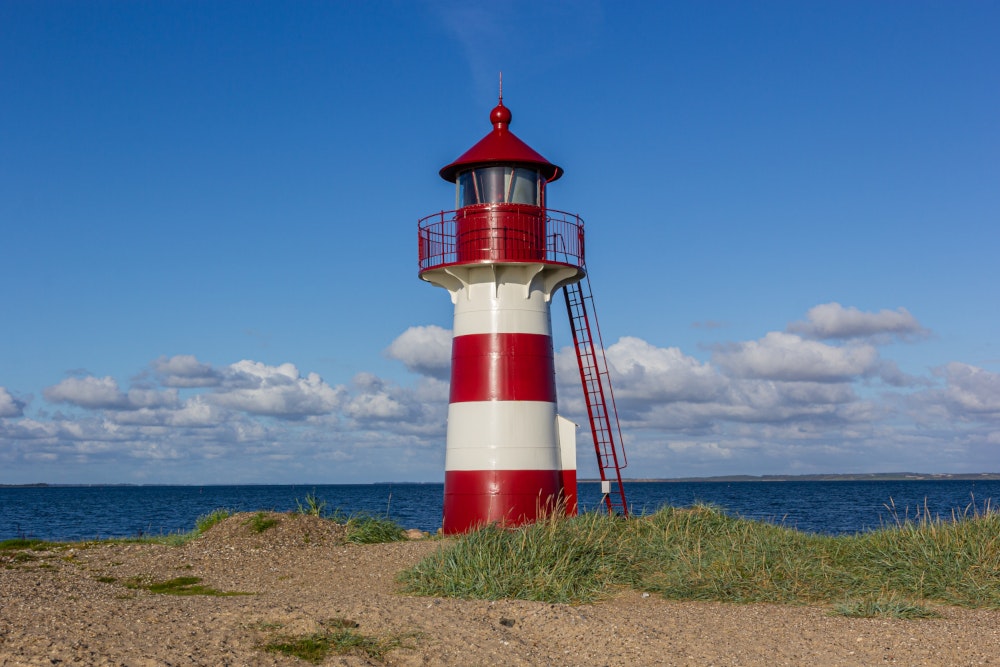
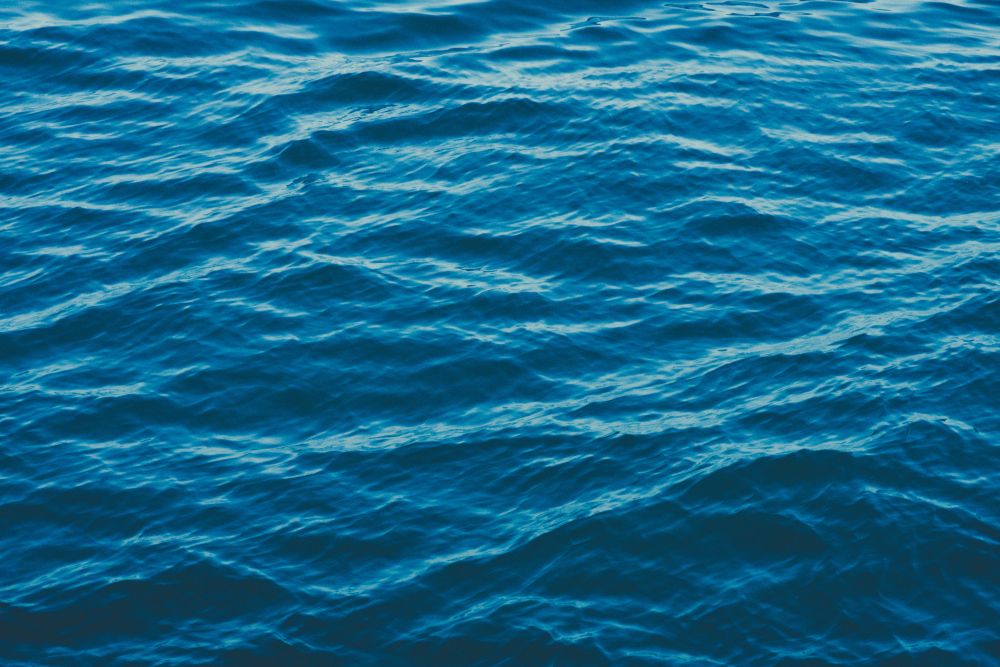

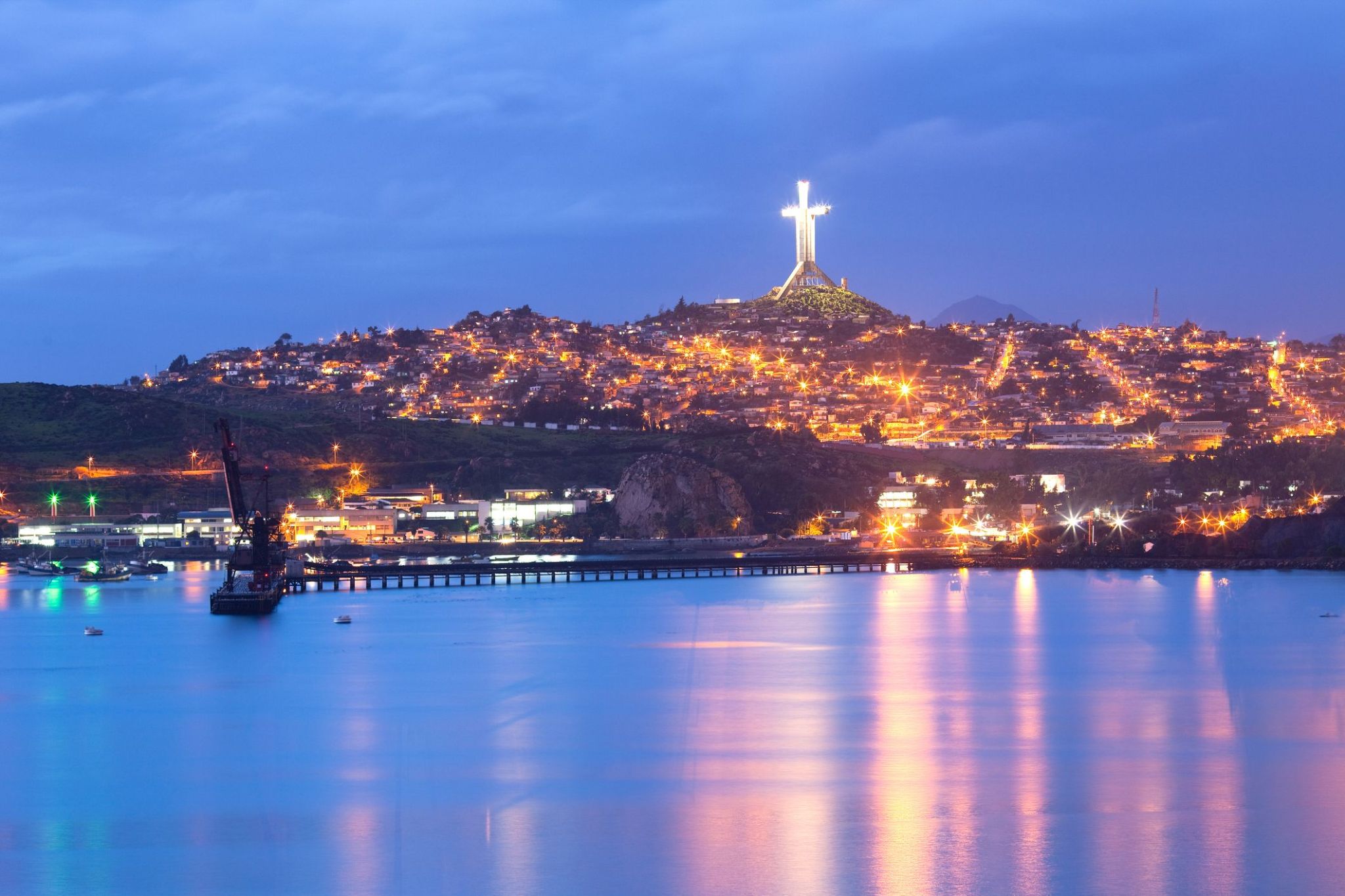
Անկրկնելի հանդիպում Խաղաղ օվկիանոսի ափի հետ սպասում է յուրաքանչյուր ճանապարհորդի, ով ուղևորվում է դեպի Կոկիմբո — հմայիչ քաղաք, որտեղ ժամանակակիցն ու պատմությունը հիանալիորեն միահյուսված են։ Ծոցի առավոտյան զեփյուռից մինչև նավահանգստի շքեղ մայրամուտները՝ այս հանգստավայրը պարգևում է իսկական չիլիական ափի մթնոլորտը, որտեղ կյանքը հոսում է դանդաղ, և յուրաքանչյուր փողոց ծովի բույրով է հագեցած։ Այստեղ կարելի է վայելել թարմ ծովամթերք հարմարավետ ռեստորաններում կամ զբոսնել նրբագեղ ափամերձ գծով՝ վայելելով տեսարանները և ճայերի ճիչերը։
Կոկիմբո-ն հայտնի է նաև իր պատմական և մշակութային հուշարձաններով՝ հին եկեղեցիներ, արհեստագործական շուկաներ և ժամանակակից արվեստի պատկերասրահներ, որոնք ստեղծում են եզակի համադրություն ավանդույթի և նոր տպավորությունների։ Արկածախնդիրները կարող են ուսումնասիրել շրջակա բլուրները կամ այցելել խորհրդավոր բերդը՝ որպես քաղաքի ծովահենային անցյալի վկան։ Այս քաղաքը կարծես հրավիրում է յուրաքանչյուր ճանապարհորդի՝ գրել իր սեփական գլուխը Չիլիի ափի զարմանալի պատմության մեջ։


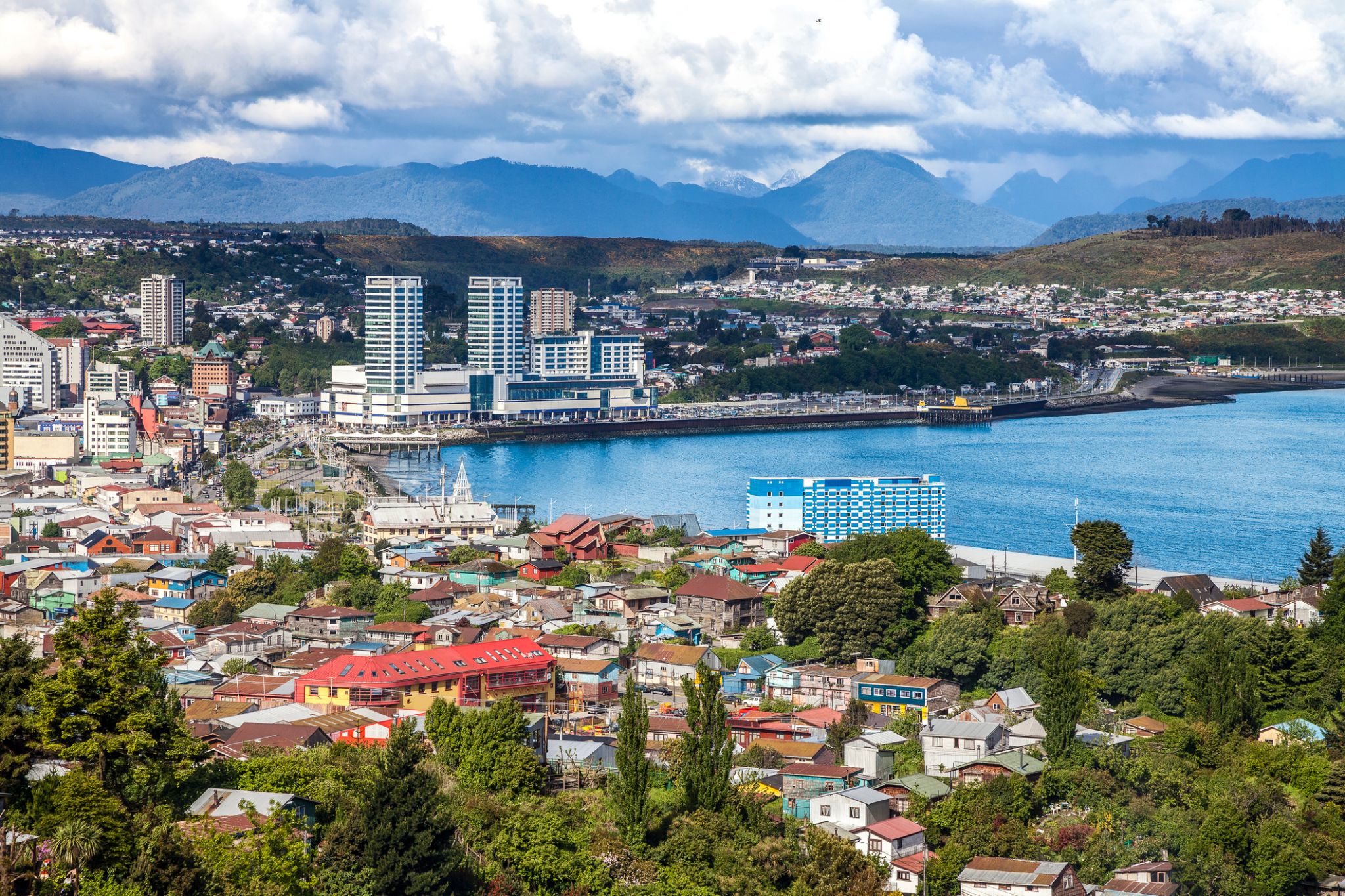
Puerto Montt is a port city and commune in southern Chile, located at the northern end of the Reloncaví Sound in the Llanquihue Province, Los Lagos Region, 1,055 km to the south of the capital, Santiago. The commune spans an area of 1,673 km2 (646 sq mi) and has a population of 245,902 in 2017. It is bounded by the communes of Puerto Varas to the north, Cochamó to the east and southeast, Calbuco to the southwest and Maullín and Los Muermos to the west.
Founded as late as 1853 during the German colonization of southern Chile, Puerto Montt soon outgrew older neighboring cities due to its strategic position at the southern end of the Chilean Central Valley being a gateway city into Chiloé Archipelago, Llanquihue and Nahuel Huapi lakes and Western Patagonia.
Puerto Montt has gained renown and grown significantly due to the rise of Chile as the second largest salmon producer of the world during the 1990s and 2000s. However, the Chilean salmon aquaculture crisis of the late 2000s resulted at least temporarily in severe unemployment and exposed weaknesses in the local economy. The city's cultural heritage mixes elements of Chiloé culture with German heritage although the city has attracted a significant number of newcomers from all over Chile in the last 30 years due to employment opportunities.
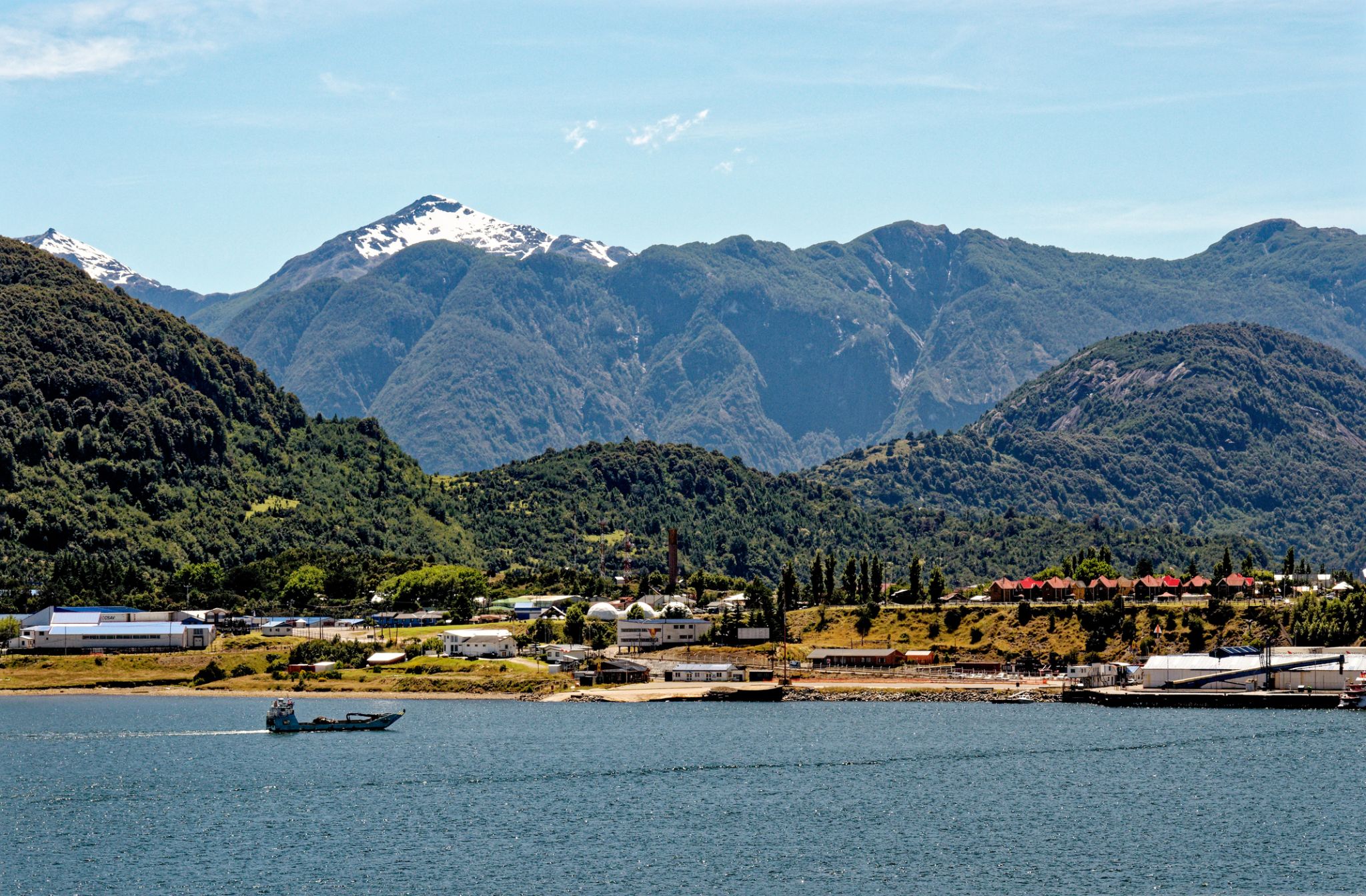



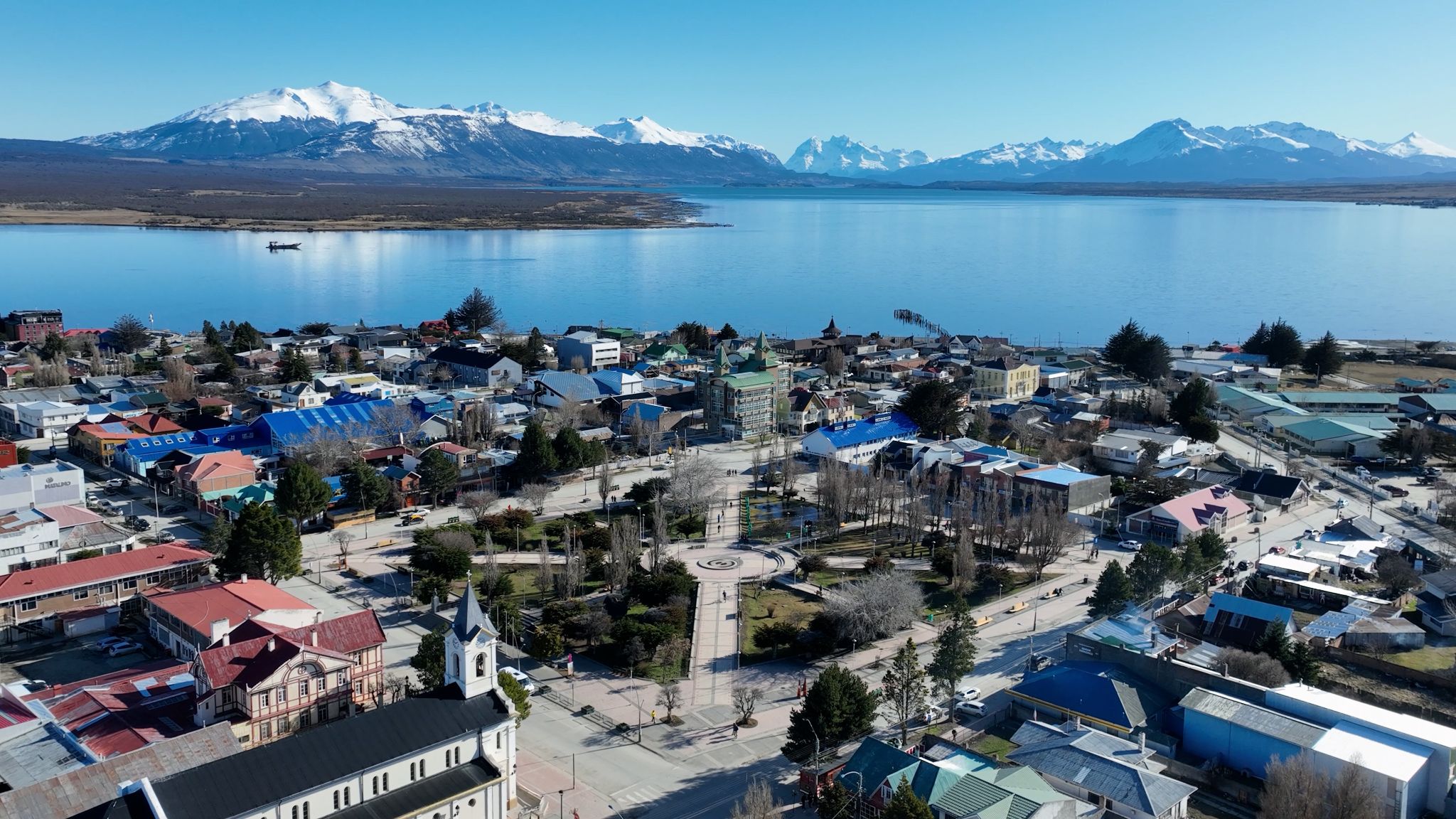

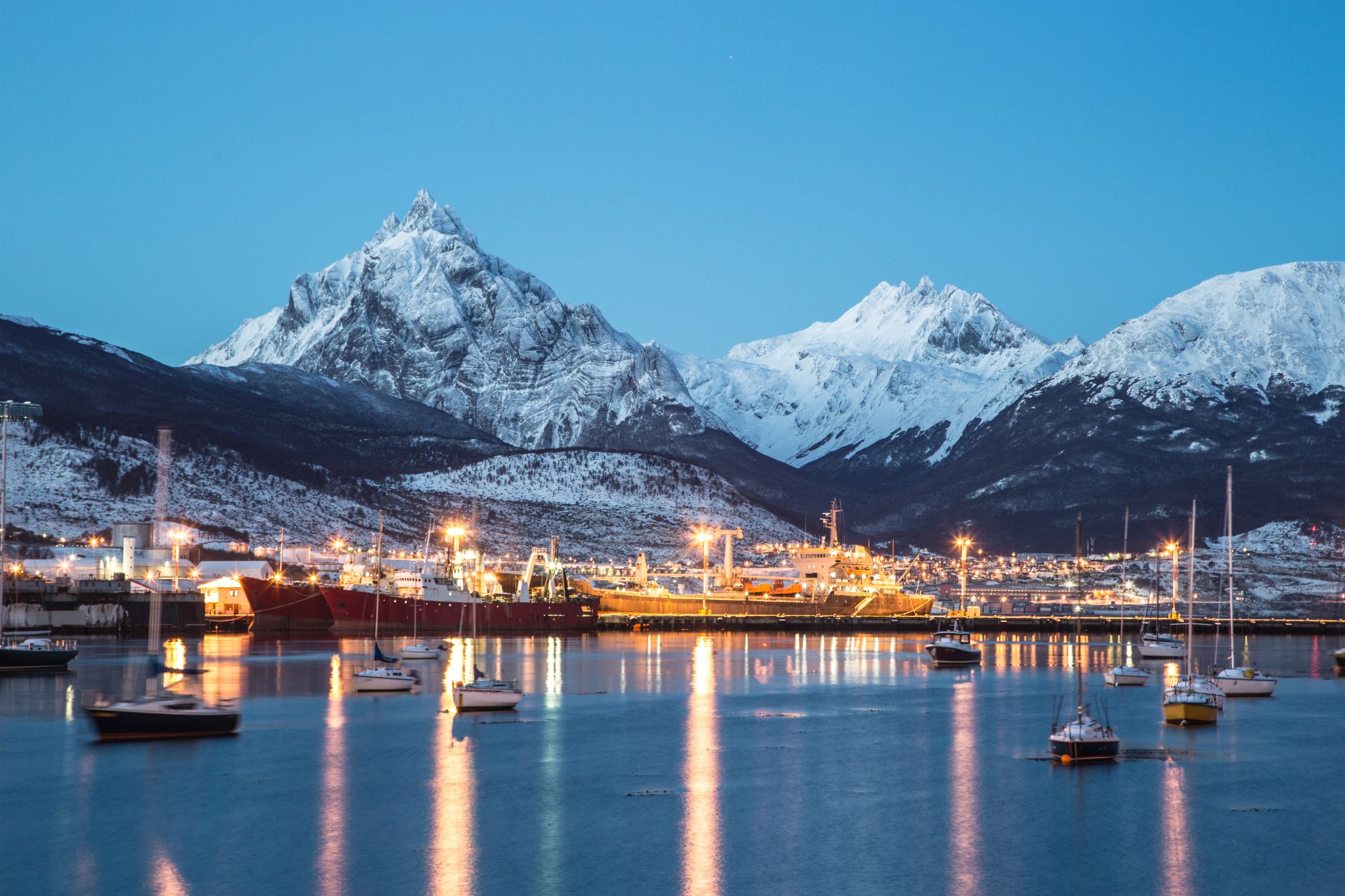
Ushuaia is the capital of Tierra del Fuego, Antártida e Islas del Atlántico Sur Province, Argentina. It is commonly regarded as the southernmost city in the world. Ushuaia is located in a wide bay on the southern coast of Isla Grande de Tierra del Fuego, bounded on the north by the Martial mountain range, and on the south by the Beagle Channel. It is the only municipality in the Department of Ushuaia, which has an area of 9,390 km2 (3,625 sq mi). It was founded October 12 of 1884 by Augusto Lasserreand is located on the shores of the Beagle Channel surrounded by the mountain range of the Martial Glacier, in the Bay of Ushuaia. Besides being an administrative center, it is a light industrial port and tourist hub.

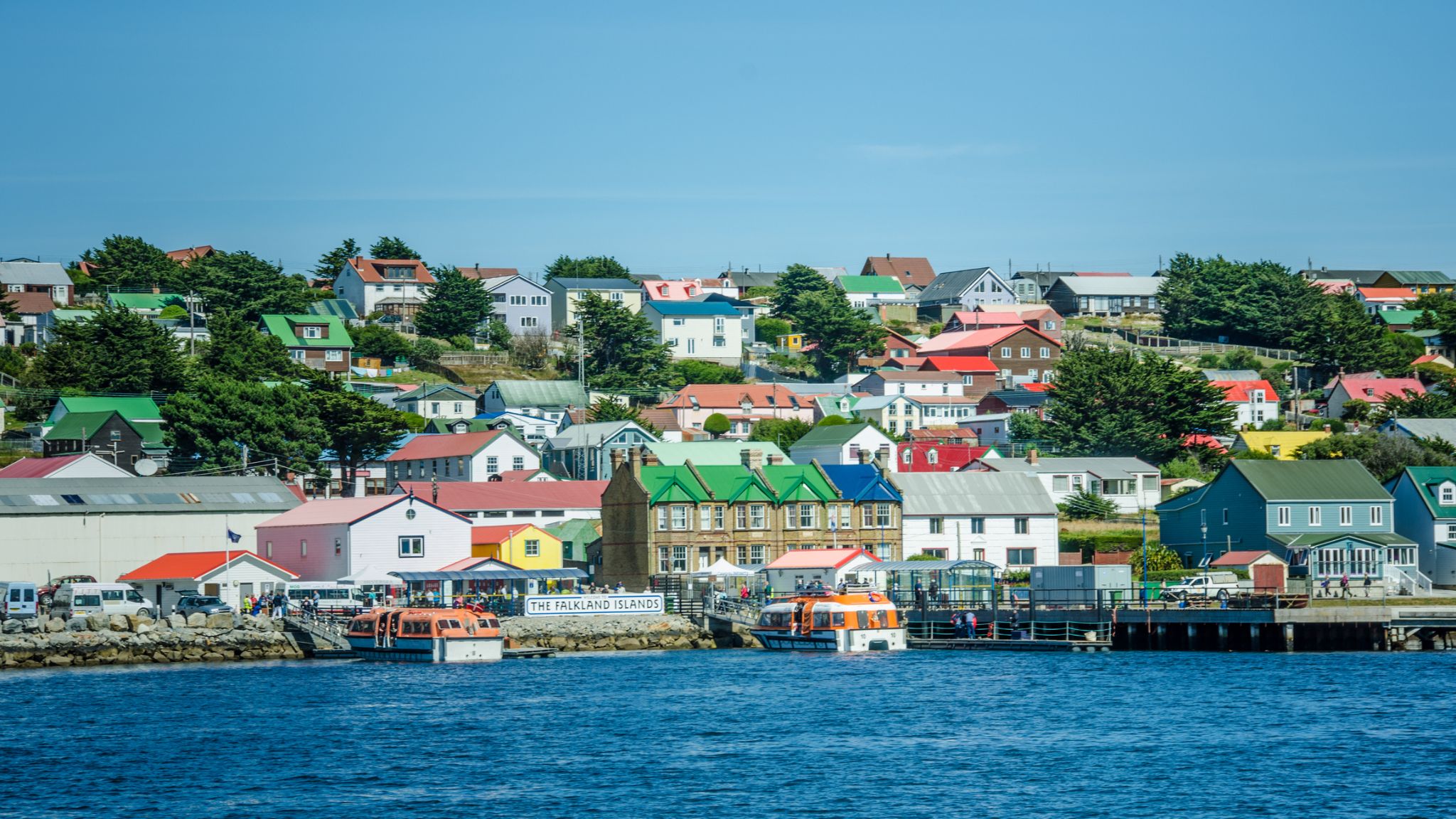
Stanley is the capital of the Falkland Islands. It is located on the island of East Falkland, on a north-facing slope in one of the wettest parts of the islands. At the 2016 census, the town had a population of 2,460 the entire population of the Falkland Islands was 3,398 on Census Day on 9 October 2016
Stanley is represented by five members of the Legislative Assembly of the Falkland Islands, currently Stacy Bragger, Barry Elsby, Mark Pollard, Roger Spink and Leona Vidal Roberts.
Stanley is the main shopping centre on the islands and the hub of East Falkland's road network. Attractions include the Falkland Islands Museum, Government House – built in 1845 and home to the Governor of the Falkland Islands – and a golf course, as well as a whale-bone arch, a totem pole, several war memorials and the shipwrecks in its harbour. The Falkland Islands Company owns several shops. Stanley has four pubs, 11 hotels and guesthouses, three restaurants, a fish and chip shop and the main tourist office. There are three churches, including the Anglican Christ Church Cathedral, the southernmost Anglican cathedral in the world, and the Roman Catholic St. Mary's Church. A bomb disposal unit in the town is a legacy of the Falklands War.
The town hall serves as a post office, philatelic bureau, law court and dance hall. The police station also contains the islands' only prison, with a capacity of 13 in the cells.
The community centre includes a swimming pool (the only public one in the islands), a sports centre, library, and school. A grass football pitch is located by the community centre and hosts regular games.
Stanley Racecourse, located on the west side of Stanley, holds a two-day horse racing meeting every year on 26 and 27 December. The Christmas races have been held here for over 100 years.
Stanley Golf Course has an 18-hole course and a club house. It is also located to the west of Stanley.
King Edward VII Memorial Hospital is the islands' main hospital, with doctors' practice and surgery, radiology department, dental surgery and emergency facilities.
Several bus and taxi companies operate out of Stanley.
Stanley is also home to the Falkland Islands Radio Station (FIRS), the Stanley office of the British Antarctic Survey, and the office of the weekly Penguin News newspaper.
A nursery and garden centre is also here, in whose greenhouses some of the islands' vegetables are grown.


Գոլֆո Նուեւոյի ափերին փռված Պուերտո Մադրին հրավիրում է ճանապարհորդներին վայելելու Հարավային Ամերիկայի ամենահիշարժան վայրի բնության հանդիպումներից մեկը։ Այս ծովափնյա քաղաքը, որն հայտնի է որպես Վալդեսի թերակղզու (ՅՈՒՆԵՍԿՕ-ի համաշխարհային ժառանգության օբյեկտ) դարպաս, առաջարկում է եզակի հնարավորություն՝ անմիջապես լողափից դիտելու հարավային աջափսիլ կետերին, ինչը եզակի տեսարան է աշխարհում։
Ի լրումն իր ծովային հրաշքների, Պուերտո Մադրին հմայիչ փողոցներ ունի արհեստագործական խանութներով, սրճարաններով և հյուրընկալ տեղացիներով, ովքեր սիրով կկիսեն տարածաշրջանի պատագոնական ավանդույթները։ Այստեղ կարելի է սուզվել ծովային առյուծների հետ, ուսումնասիրել վայրի բնապատկերները և վայելել թարմ ծովամթերքը։ Չի զարմանալի, որ այս վայրը շարունակում է գրավել բնության և արկածների սիրահարներին։

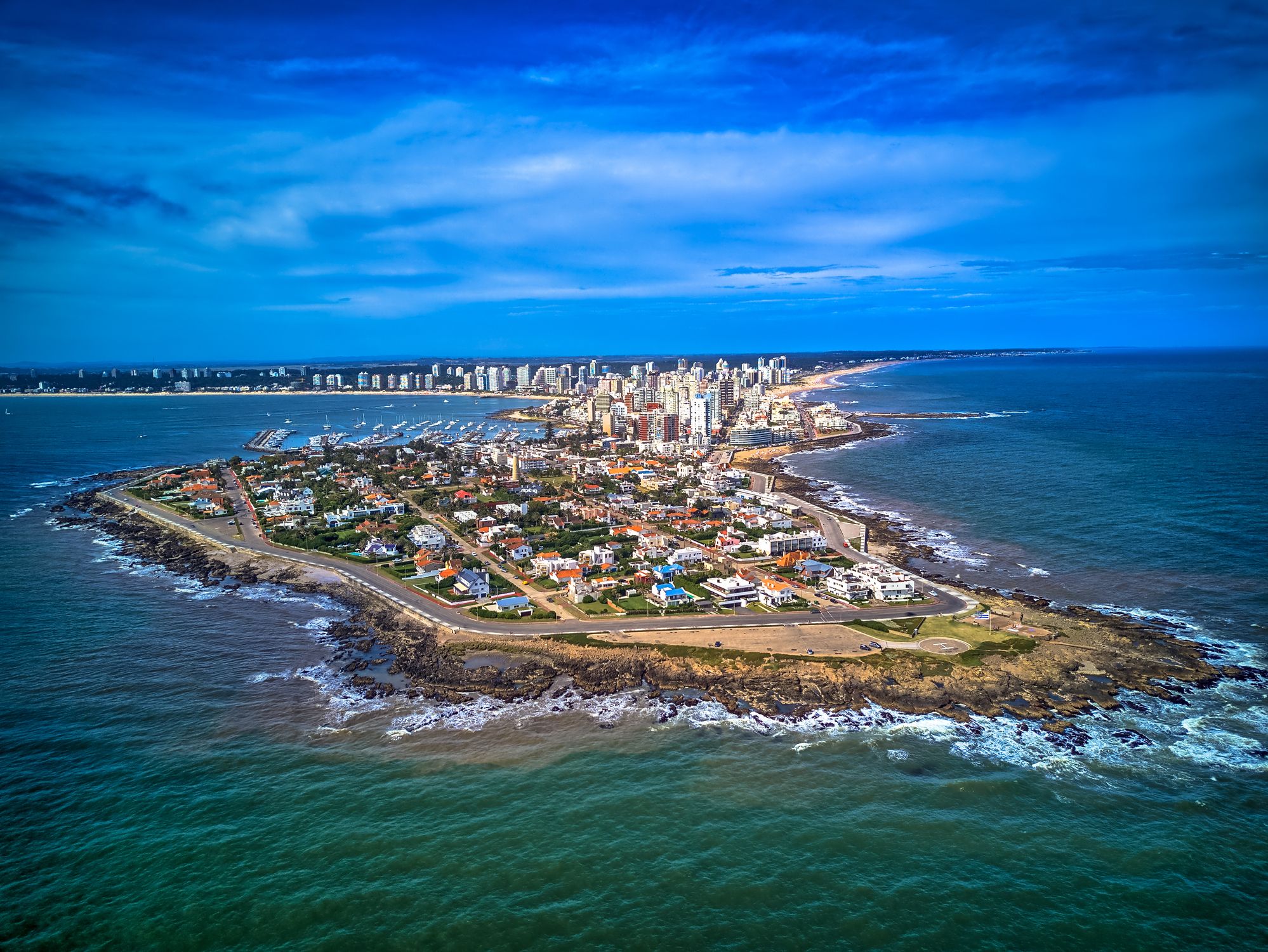
Պունտա դել Էստե — Ուրուգվայի ծովափնյա առողջարան Ատլանտիկի ափին
Պունտա դել Էստեն Հարավային Ամերիկայի ամենահայտնի առողջարաններից է, որը գտնվում է Ուրուգվայի հարավային ափին՝ այն տեղում, որտեղ Ատլանտյան օվկիանոսը միանում է Լա Պլատա էստուարի հետ։ Այս քաղաքը հայտնի է իր հակադրություններով. մեկ կողմից՝ շքեղ թաղամասեր, ժամանակակից երկնաքերեր, նավահանգիստներ և բարձրակարգ ռեստորաններ, իսկ մյուս կողմից՝ հանգիստ ավազոտ լողափեր, գեղատեսիլ ավազաթմբեր և ալիքներ, որոնք իդեալական են սերֆինգի համար։ Այն հաճախ անվանում են «Հարավային Ամերիկայի Մոնակո»՝ իր շքեղ ենթակառուցվածքների և համաշխարհային ճանաչում ունեցող հյուրերի շնորհիվ։
Բացի լողափերից՝ քաղաքը առաջարկում է մշակութային և բնական տեսարժան վայրեր՝ "La Mano" քանդակը, որը դարձել է քաղաքի խորհրդանիշը, Ralli ժամանակակից արվեստի թանգարանը, ինչպես նաև ափամերձ կղզիները՝ ծովառյուծներով։ Արժե այցելել նաև Լա Բարրա թաղամասը իր բոհեմյան մթնոլորտով կամ վայելել մայրամուտը Փունտա դել Էստեի փարոսի մոտ։ Ամառային սեզոնին (դեկտեմբեր–փետրվար) քաղաքը դառնում է աշխույժ կենտրոն՝ գրավելով զբոսաշրջիկներին ամբողջ աշխարհից։
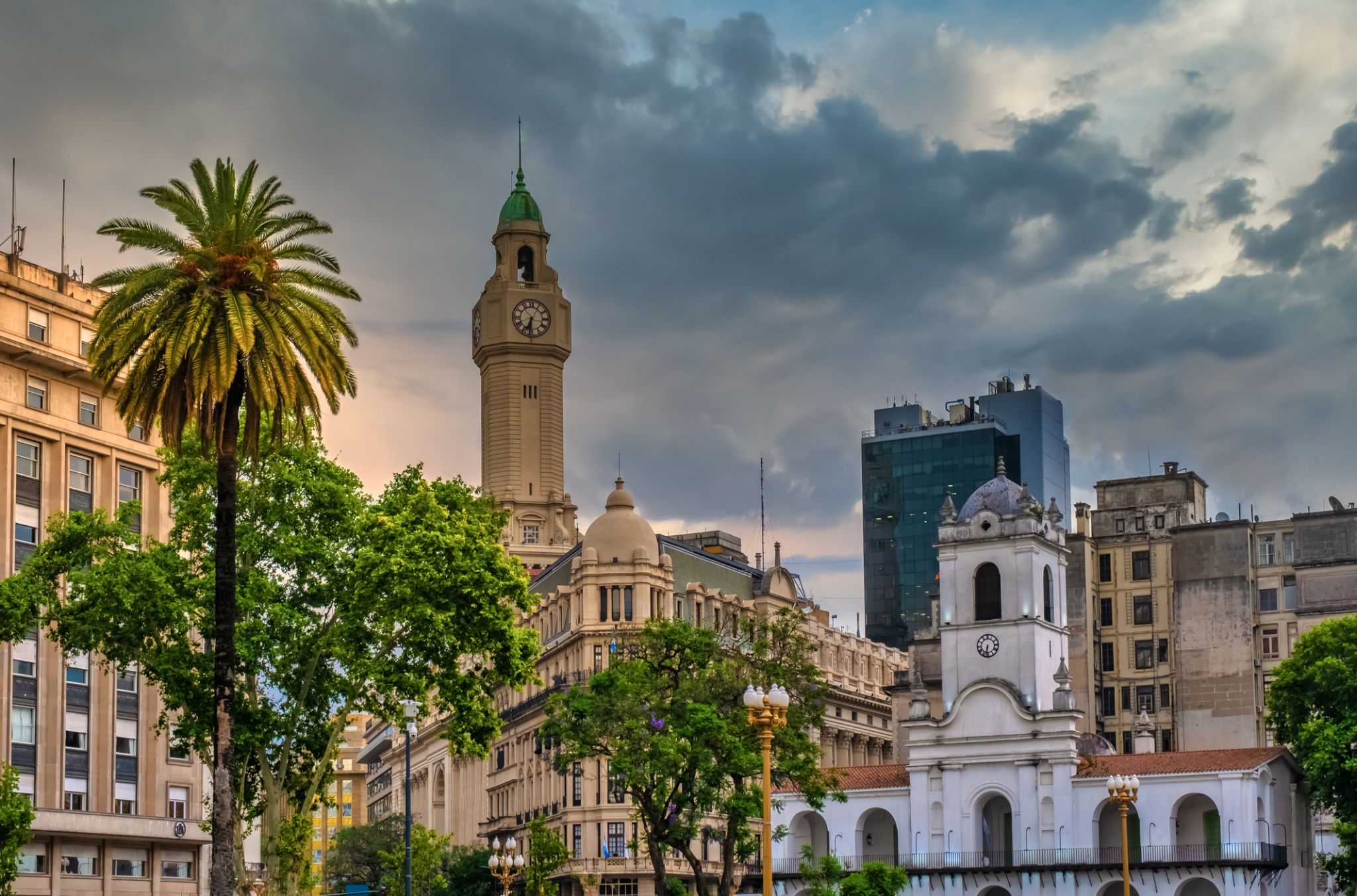
the capital city and chief port of Argentina, in the eastern central part of the country, on the Plata River; population 3,042,600 (est. 2008).